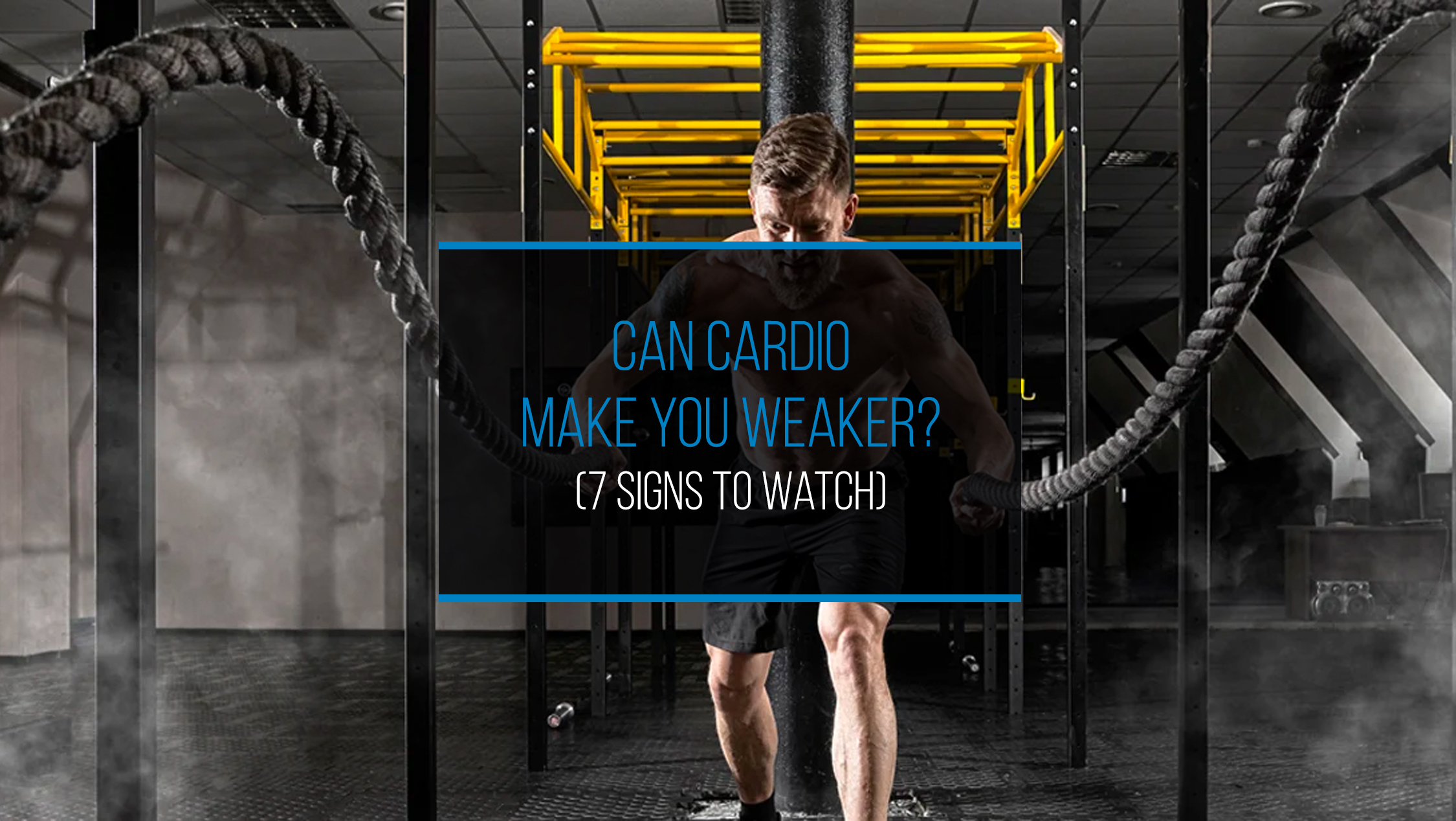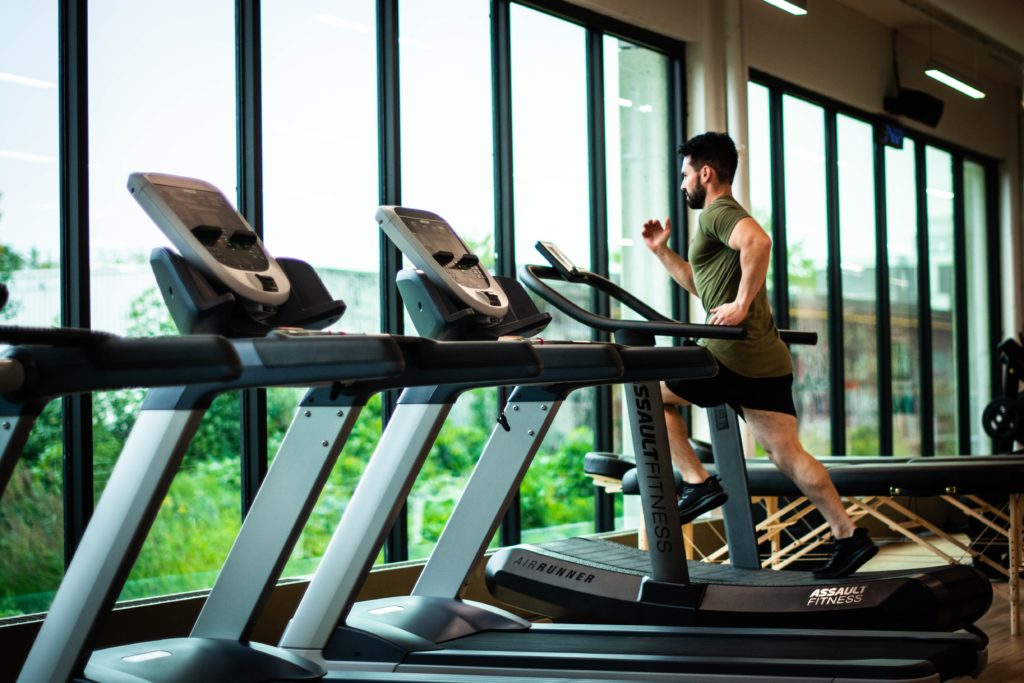
Cardio is one of the best forms of exercise for heart health and has many other benefits. For this reason, it’s a go-to activity that’s recommended by doctors and health professionals across the globe.
But can the benefits of cardio be outweighed by reduced energy and strength?
In short, cardio shouldn’t make you feel weaker if it’s not overdone and provided it’s done correctly. However, there are instances when it can impact energy levels and muscle strength, especially if you’re doing too much of a certain activity.
If you’re a cardio regular, but you’re worried that it might be affecting your general health and well-being or impacting the benefits you see from strength training, there might be an issue you need to address.
In this article, we’ve put together all the information you need to spot the signs that cardio could be weakening you and what action to take to get you back on track.
What Exercise is Considered Cardio?
Cardio (also known as aerobic or cardiovascular exercise) is any physical activity that raises your heart rate and gets you breathing harder. Cardio activity is usually a form of repetitive exercise that you can perform at different intensities, depending on your ability and goals.
You don’t have to join a gym to do it and some intense household chores such as scrubbing a floor or chopping wood can even count as cardio.
These are just some of the most popular forms of cardio exercises:
- Cycling
- Running/Brisk Walking
- Hiking
- Swimming
- Jump Rope
- Treadmill
- Elliptical
- Exercise/Stationary Bike
- Stair Climbing
- Aerobic Classes/Water Aerobics
- High Intensity Interval Training (HIIT)
- In-place (on the spot) exercises such as Running, Jumping Jacks, Squat Jumps
- Body weight exercises such as Burpees or Mountain Climbers.
Can Cardio Make You Weaker?

Provided it’s not overdone, cardio exercise alone shouldn’t make you feel weaker. In fact, it should make you feel more energized and healthier, and enable you to get better sleep.
However, problems can arise if you do too much intense exercise or alternate cardio with other forms of exercise such as weight lifting.
It’s thought that some forms of cardio can slow progress if you’re trying to build muscle mass through strength training.
If you feel that cardio could be impacting the results you’re seeing, or you’re feeling physically weaker, you might need to adjust the kind of exercise you do.
An example of this would be switching to a cardio activity that complements your strength work, such as incorporating burpees and mountain climbers into your strength training routine.
The Benefits of Cardio
Before we get into how to identify if cardio is making you weaker, it’s important to understand the potential health benefits that, in most circumstances, will outweigh any negatives.
Here are the main benefits that you should expect when you do regular cardio and the reason why it’s such a popular form of exercise:
- Improved heart strength enables the heart to work more effectively at pumping blood around the body.
- Reduces the risk of high blood pressure through improved blood flow.
- Increased lung capacity helps the lungs take in more air, making exercise easier over time.
- Improved Sleep. It’s been proven that cardio exercise can help improve sleep, especially if performed earlier in the day.
- Decreased Stress. Regular cardio exercise helps reduce stress and can also reduce anxiety and depression symptoms.
- Weight Loss. Cardio helps burn calories and, over time, can help contribute to weight loss, especially if performed in conjunction with a healthy diet.
- Increased Energy. If done correctly, cardio exercise should make you feel like you have more energy than before.
If you don’t feel that you’re seeing any benefit while following a regular cardio routine, there could be an issue with the amount or kind of exercise you’re doing (we’ll cover how to spot this next).
How Much Cardio Should You Do?
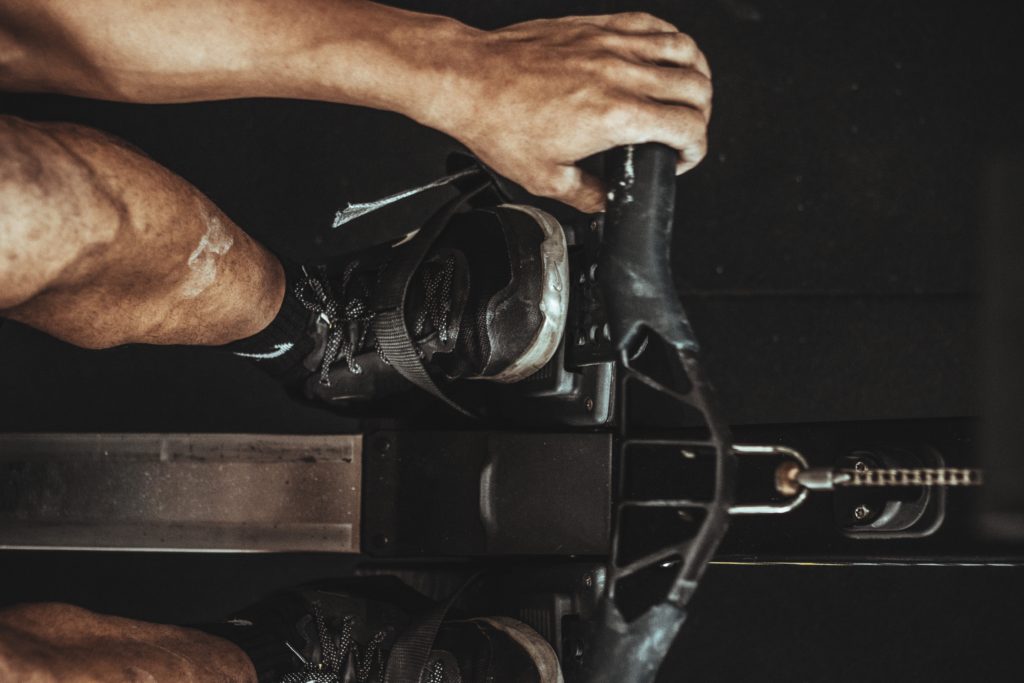
One of the main reasons why cardio could be making you feel weaker is that you’re doing too much.
The American Heart Association says you should do at least 150 minutes of moderate-intensity cardio exercise or 75 minutes of intense cardio. This should ideally be spread across the week, for example, five 30-minute moderate cardio sessions or three 25-minute intense sessions.
There’s no specific guidance about an upper limit of how much cardio is too much. However, there’s some evidence of potential risk if intense exercise exceeds 60 minutes. Most experts also suggest that you should have one or two rest days.
Too much intense cardio can lead you to feel exhausted, and it can also increase the risk of injury.
If you feel that you’re doing more cardio than you should and that it’s starting to impact your health negatively, you might need to cut down a little or reevaluate the kind of exercise you’re doing.
Signs Cardio Might Be Making You Weaker
We’ll now show you how to spot if cardio is making you weaker in strength or whether it’s reducing your energy levels.
It’s important to point out that there may be other reasons for some of these symptoms, so if in doubt, contact a doctor or health professional for an expert opinion.
If you are experiencing weakness due to too much exercise, your doctor might also recommend adjusting your routine based on your health and abilities.
1. You’re Tired All The Time

Although many people who do regular cardio exercise report improvements in energy levels, some might feel more tired than before, especially if they’re overdoing things.
Doing too much cardio, especially intense cardio, can lead to tiredness and even physical or mental exhaustion.
How to Prevent Tiredness Caused by Cardio
If you’re feeling tired following a cardio exercise, don’t worry because there are things you can change to fix the problem, including:
- Reducing the amount of cardio you do. If you exceed 60 minutes of cardio per day throughout the week, you might be doing too much. Reduce it to 150 minutes (moderate) or 75 minutes (intense).
- Changing the kind of exercise you do. If your workouts are intense, try switching the intensity down for a week or two to see if it makes a difference.
- Consider switching to HIIT if you’re doing lengthy workouts. This is a great way to get in a quick and effective cardio workout without feeling too tired afterward. HIIT involves alternating between short bursts of high-intensity activity and brief rest or recovery periods. This type of cardio is very effective at burning calories and can be done in a relatively short amount of time.
- Ensuring you’re getting enough fluids. Not drinking enough water during and after exercise can make you tired.
- Checking your diet. Eating the wrong kinds of food or drinking too much caffeine or alcohol can make you feel more tired and counteract the benefits of exercise.
2. You’re Experiencing Pain

If you’re in pain due to exercise or for another reason, such as a previous injury, this can be draining and impact your performance during a cardio workout.
When the pain is happening because of the exercise you’re doing, you might need to adjust the kind of activity you do to avoid the risk of injury.
Cardio exercise shouldn’t cause pain, but because many cardio activities are repetitive, this can lead to strain if the impact is consistently in the same area.
If you are experiencing pain during exercise, try changing it for a few weeks to see if it makes a difference. It’s also a good idea to seek medical advice to ensure you don’t do any long-term damage.
3. You’re Not Seeing Weight Training Results

There is some debate over cardio impacting the results of weight training and whether it can counteract results by reducing muscle mass rather than increasing it.
Many bodybuilders report a negative impact when they do too much cardio and as well as decreased strength as some report feeling weaker on strength training days.
If you’re not looking to build muscle mass and you do cardio, this isn’t something you need to worry about too much. However, if building muscle is one of your goals, there are some things you can change to still get cardio benefits without loss of muscle mass, including:
- Alternating cardio with strength training. Most cardio activity is based on body weight exercises with little resistance. If you want to concentrate on building muscle mass, alternate strength training with cardio so you do two-three sessions per week.
- Doing more strength-building cardio. Choose cardio exercise that incorporates some body weight training such as burpees, mountain climbers or cycling.
- Making sure you’re eating enough. Not getting enough calories, especially when you’re training can lead to a deterioration in muscle mass over time.
- Getting plenty of protein. Eating enough protein helps increase and maintain muscle mass.
4. You Don’t Have Energy for Other Kinds of Exercise
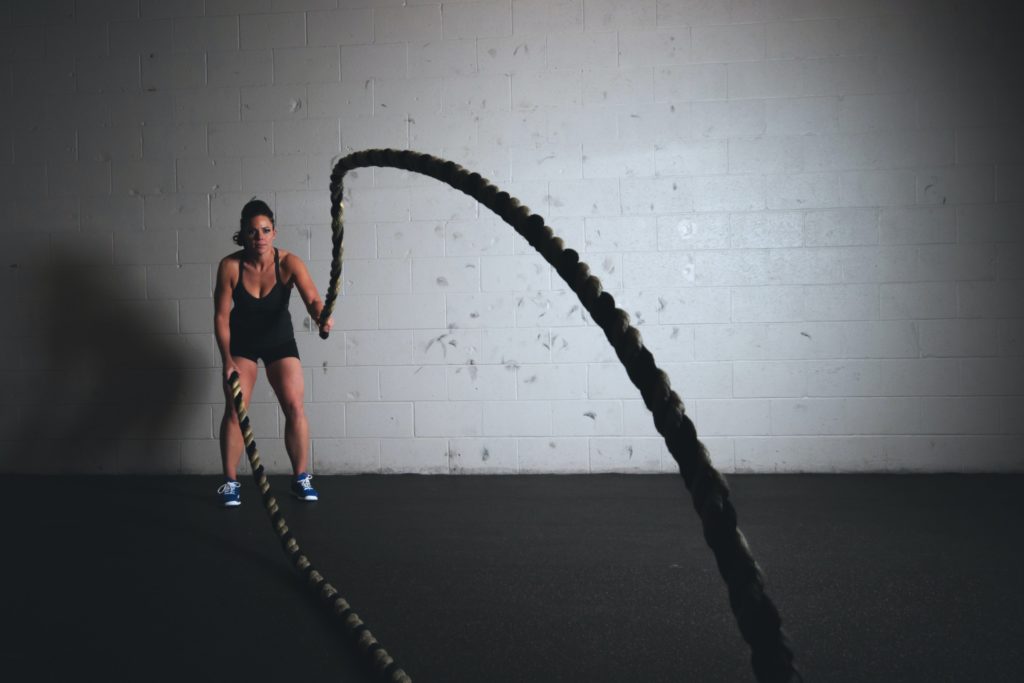
If you alternate cardio with other forms of exercise, there is a chance you can feel weaker when you do other kinds of activity such as weight training or CrossFit.
This might happen if you’re doing too much cardio or if you’re not getting a rest day or two to help your body recover.
To prevent cardio from impacting other exercise, you might want to consider making the following changes:
- Decrease the intensity of your cardio workouts.
- Replace a cardio day with a rest day.
- Take a break from other exercise or cardio for a week to see if there’s a difference in your energy levels.
- Try switching to HIIT which can provide more benefits in less time.
- Exercise in the morning because this can help you sleep better.
5. Cardio Doesn’t Make You Feel Energized
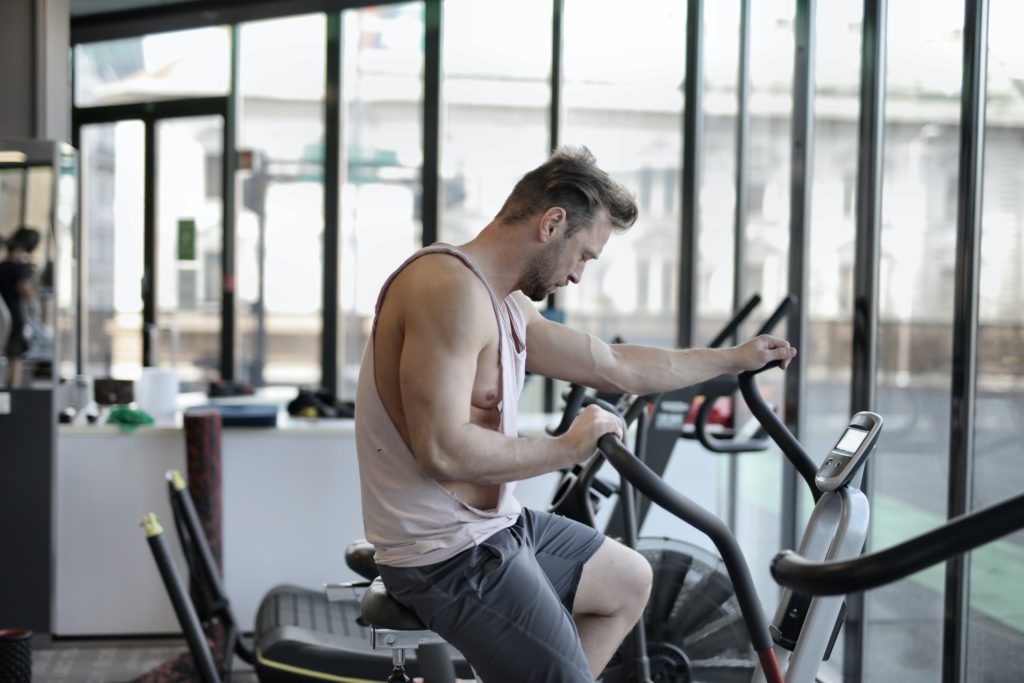
Performing cardio exercise should make you feel more energized and it can also help lift your mood.
If you’re not feeling good after cardio, it could be a sign it’s making you feel weaker and there might be something you need to change in your workout routine.
Reducing intensity or changing the kind of activity you do might help make you feel more energized after a workout.
It’s also important to check other factors that might be making you feel low because it might not be cardio that’s causing the problem. Diet, a lack of sleep, and stress can all contribute to a lack of energy or a low mood.
6. You’re Not Sleeping Well

Regular cardio workouts should help improve your sleep and help you wake up feeling more energized and refreshed. However if you’re not getting enough sleep and waking up feeling exhausted, there could be a problem.
If it’s cardio related, it might be because you’re doing too much exercise, but it could also be caused by not doing enough. Try adding up your workout minutes over a week to check what you did.
Not sleeping properly can be caused by a number of other factors and not because of cardio activity, such as:
- Too much caffeine
- Drinking alcohol
- Eating the wrong kinds of foods late in the evening
- Drinking energy drinks
- Not drinking enough water
- Sleeping in the day
- Stress
- Going to bed late/getting up early
If you’re still not sure what’s affecting your sleep, you could try taking a break or reducing cardio for a week to see if it makes any difference.
7. Exercise that Was Easy is Now Hard

If your regular exercise starts to feel harder than it used to, it could be a sign that it’s making you weaker or that you’re losing some strength.
But it could also be because of something else such as returning to exercise after a break or recovering from an illness.
If you feel your cardio workout could be affecting your performance, try reducing the intensity and don’t overdo things to help get your energy levels back where they were.
In some cases, this can be due to the fact you’re doing the same activity in every workout — try incorporating some new activities to see if it makes a difference.
You might also need to get medical advice in case there’s anything else that could be affecting your energy levels.
Conclusion
We hope this article has helped you with some ideas on how cardio can affect you physically and what to do if it starts to impact your energy or strength training.
Ultimately, most issues can be fixed with an adjustment to the amount of cardio you do, or changing or expanding the range of cardio activity you perform. The benefits of cardio almost always outweigh any negatives, so don’t give up — just re-adjust!

